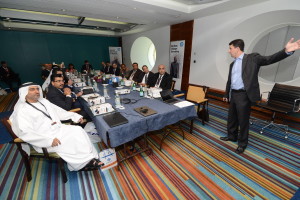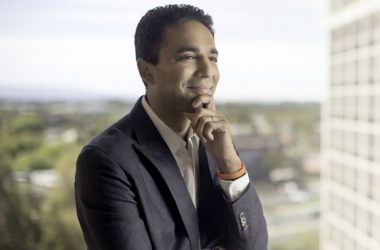 Exploiting the vast pools of data at their disposal remains a sizeable obstacle for many organisations across the Middle East. Spokesmen from the two firms joined forces to gain a unique insight into the thoughts of the region’s CIOs on the conundrum.
Exploiting the vast pools of data at their disposal remains a sizeable obstacle for many organisations across the Middle East. Spokesmen from the two firms joined forces to gain a unique insight into the thoughts of the region’s CIOs on the conundrum.
Joao Tapadinhas, Research Director, Gartner, kicked off proceedings by attempting to dissect how organisations can make use of Big Data, “It’s important to combine volume, velocity and variety,” he said. “A lot of you have probably been using Big Data for a long time, but just don’t recognise it, and you probably have terabytes that could be monetised.”
Wissam Mattout, Head of IT, MEA, NEXtCARE, set the ball rolling for discussion amongst the room’s technology decision makers. “Big Data isn’t a brand new concept,” he said. “I think that looking forward, it’s very important that organisations really exploit the potential of it. In my view, the real value of Big Data is predictive analytics.”
Esam Hadi, Senior Manager, IT, Aluminium Bahrain, agreed with Mattout’s outlook. “There are many aspects of Big Data which need to be differentiated,” he said. “Business Intelligence is easily done. That is not the issue. Predictive analytics, however, is the hard part, and the thing that does stand to add value. The Middle East needs the proper platform here for predictive analytics.”
John Horman, Director of Technology, EMEA, HP Autonomy, moved the discussion forward. “Processing human information is difficult because it is designed for humans – not computers – to process,” he said. “Take the word ‘mercury’. This could mean either a planet, poison or a type of car. Over 80 percent of the information we gain is based on context.”
Ali Radhi, Head of IT, MBC, expressed his concerned regarding the linguistic aspects of certain Big Data tools, “These tools need to accommodate different languages,” he said. “Live feeds, phone, TV, social and YouTube all require different specs for Arabic.”
Ahmed Ebrahim Al Ahmad, CIO, Nakheel, said, “In our world, we view data scientists as business analysts,” he said. “At Nakheel we have identified retail personnel who have IT backgrounds, but are fundamentally experts in retail. The development and enhancement of retail in particular has moved fast; it’s important to consider that a business scientist or analyst may not be IT-oriented.”
Deepu Thomas Philip, Head of IT, Kuwait International Bank, expressed concern that Big Data solutions were focused to each vertical, “Different verticals have different requirements,” he said. “We have vast amounts of information in the Middle East, but I do believe that we need specific solutions for each vertical – for example the finance industry has compliance issues. There is a shortage of people in the Big Data industry to help each segment.”





